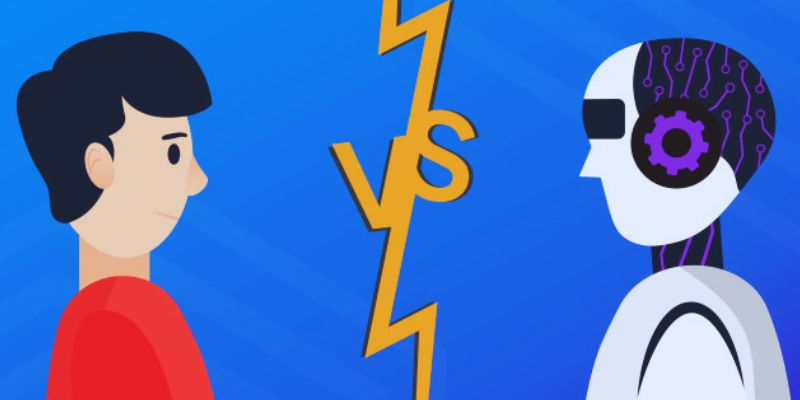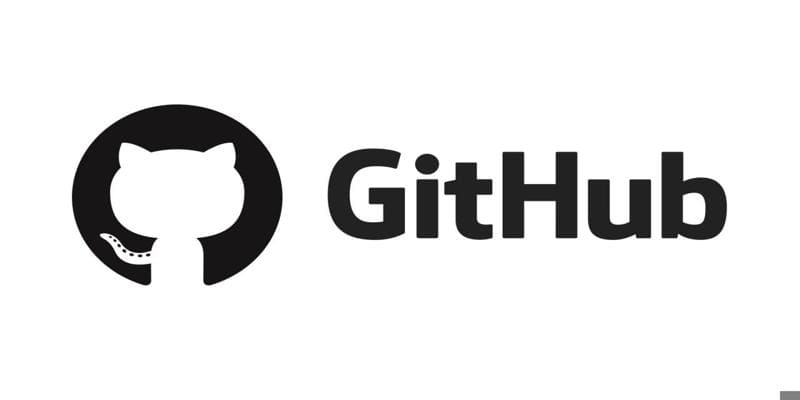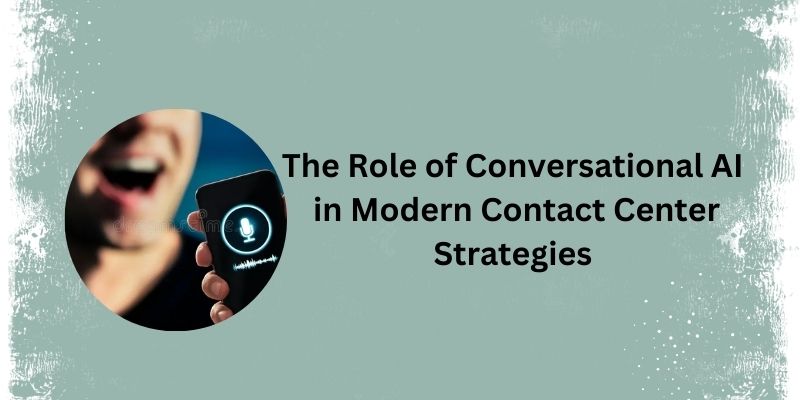Modern marketing concepts depend much on the creation of content. In the process, artificial intelligence and human writers have special benefits and constraints. Fast and effective artificial intelligence writers produce scalable, quick material. Conversely, human authors bring passion and imagination to the table. Knowing the variations between artificial intelligence and human writers will let you decide which method best fits your situation.
The following article will help you decide by looking at the advantages and drawbacks of artificial intelligence against human authors for content creation. Knowing the advantages of artificial intelligence and human-generated content will help you if you are thinking about enhancing your content strategy.

The Pros of Using AI Writers in Content Creation:
Artificial intelligence authors have become well-known because they can regularly and quickly create material. The biggest advantage is speed. Content produced by artificial intelligence can be created in a fraction of the time required of a human author. AI is a useful tool for companies needing a lot of material on tight deadlines. Cost-effectiveness is yet another benefit. Since artificial intelligence writers are usually less costly than humans, businesses find them more financially reasonable.
One other major advantage is the scalability factor. You can create material on a big scale using artificial intelligence without calling for more employees. Notwithstanding these advantages, AI-generated work lacks the emotional depth and subtlety human writers can offer. AI cannot replace the originality and emotional connection that human writers bring to their work, even while it can produce grammatically perfect and ordered information.
The Benefits of Human Writers for Content Creation
Human authors possess an emotional intelligence and degree of inventiveness not matched by artificial intelligence. They may capture gripping stories and involve readers. That is crucial for materials that foster brand loyalty or tell a distinctive narrative. Personal experiences and emotions allow human writers to produce material that appeals to readers. Human writers also grasp context and subtleties more precisely.
Human writers can adjust to several tones, styles, and audiences, while artificial intelligence could find uncertainty or sophisticated language difficult. They are also adept at including comments and editing their work to guarantee that it fits the voice of the business. The capacity to create more original and customized material is another great advantage. Human writers can create original work without relying on past facts and fresh thoughts. In a saturated digital market, this distinguishes companies.

The Limitations of AI Writers in Content Creation
AI authors do have restrictions, even if their many benefits outweigh others. One of the main negatives is their lack of originality and inventiveness. AI cannot think outside the box or develop creative ideas, even when it can process enormous volumes of data and create content based on trends. AI-generated material thus becomes formulaic and predictable. AI also might not always generate material that matches a brand's tone or values.
While artificial intelligence can replicate writing styles, it cannot completely reflect the voice of a business or alter audience expectations. Furthermore, artificial intelligence lacks emotional depth, which could give its material a robotic or mechanical impression. AI writers may be unable to manage content that needs empathy or a proper connection with the audience. That is a major drawback when creating materials to inspire or arouse feelings.
The Drawbacks of Human Writers in Content Creation
Human writers have difficulties even if they can shine in their imagination. Time is among the most major negatives. Human authors take more time to create material, particularly when writing calls for research or improvement. Businesses that need material on strict deadlines could find this problematic.
Moreover, human writers are more costly than artificial intelligence. Hiring talented writers may be expensive, particularly when a business requires a lot of material. Particularly for startups or smaller companies, this can tax budgets. Consistency is still another constraint. Burnout or performance swings are even possible for seasoned human authors. That could change the caliber of the material over time, particularly in cases with several projects to oversee.
Which is Best for SEO: AI or Human Writers?
Creating content calls for search engine optimization (SEO). Though they do it differently, artificial intelligence and human writers can create materials that appear well in search engines. Artificial intelligence shines at rapidly creating SEO-friendly content by using keywords, meta descriptions, and other components that assist a website in being optimized for search engines. Businesses trying to create a lot of SEO-optimized content quickly will find this extremely helpful.
On the other hand, human authors often have a greater awareness of user intent and how to create material that appeals to readers and search engines. They may produce work that not only passes but also offers value to the readers. Human writers also produce material that is more likely to be shared or connected to, which can raise more SEO results. Human authors bring a more complex strategy emphasizing producing valuable, shareable material, even if artificial intelligence can quickly generate content for SEO needs.
When Should You Use AI Writers for Content Creation?
Artificial intelligence writers are perfect when speed, scalability, and cost-efficiency take the front stage. Product descriptions, blog entries, or social media updates are among the jobs that need to develop copious amounts of material rapidly—that best fits them. AI is a good choice if the material is somewhat simple and does not require a strong emotional connection.
Furthermore, artificial intelligence writers are valuable for companies looking to simplify their content development process. AI may be taught to create material depending on particular rules, guaranteeing consistency and efficiency. That makes it an excellent tool for teams that must satisfy regular content needs.
Conclusion:
Every side of the argument between artificial intelligence and human writers has advantages and disadvantages. AI writers are quick, affordable, and perfect for large volumes of material. They lack emotional complexity and inventiveness, though. On the other hand, human writers come with more expenses and lengthier deadlines yet offer special, emotionally powerful material. Understanding these advantages and drawbacks will help you to decide which method best fits your requirements for producing material. Depending on the work, juggling artificial intelligence and human authors can often produce the finest outcomes.











